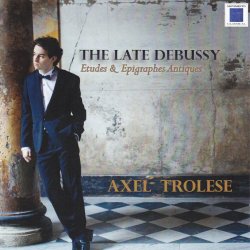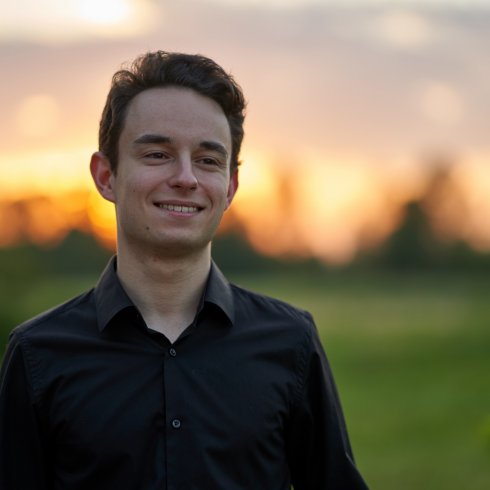
Axel Trolese

Axel Trolese is an Italian pianist born in 1997. During his training he studied with some of the most important musicians internationally, including Louis Lortie, Benedetto Lupo, Maurizio Baglini and Denis Pascal. He obtained two degrees at the National Superior Conservatory of Paris and at the National Academy of Santa Cecilia, and the Diploma at the Monteverdi Conservatory of Cremona. He is an artist in residence at the Queen Elisabeth Music Chapel in Waterloo; moreover, his artistic activity is supported by the Associazione Culturale Musica con le Ali. A passionate interpreter of French music, in 2016 he dedicated his first album "The Late Debussy: Etudes &Epigraphes Antiques", positively reviewed on Repubblica, Musica, Amadeus, il Giornale della Musica and il Corriere dello Spettacolo. Awarded in numerous international competitions ("Ettore Pozzoli Piano Competition", "Grand Prix Alain Marinaro" and "Premio Venezia"), Axel Trolese has performed in many concert halls, including the Auditorium Parco della Musica in Rome, the Teatro La Fenice in Venice, the Salle Cortot in Paris, the Ministry of Culture French, the Millennium Concert Hall in Beijing , the Quirinal, Beaulieu Abbey in Hampshire, Amiata Piano Festival, the Roman Philharmonic Academy, the Museum of Fine Arts in Rouen, the Weimarhalle in Weimar and the Fazioli Concert Hall in Sacile.Some of his concerts have been broadcast live by Radio3, France Inter, Venice NClassic Radio and Radio MCA. He has also played with orchestras such as the Jenaer Philharmonike and the Roma Tre Orchestra, working with conductors such as Massimiliano Caldi, Markus L. Frank, Ovidiu Balan and Jesús Medina. Trolese appeared in a documentary made by ARTE dedicated to the Italian composer Roffredo Caetani, interpreting some of his compositions on the Bechstein grand piano given to him by his godfather Franz Liszt. He is the main protagonist and pianist of the short film "Danza Macabra" by the famous Italian director Antonio Bido, inspired by the homonymous symphonic poem by Saint-Saëns.

